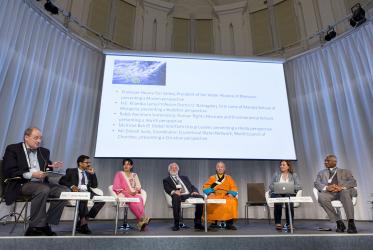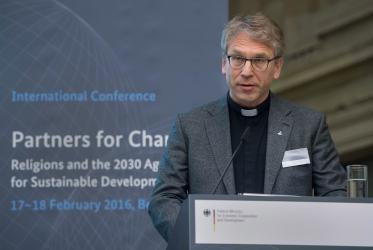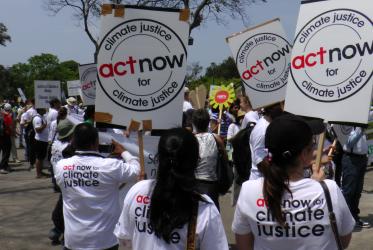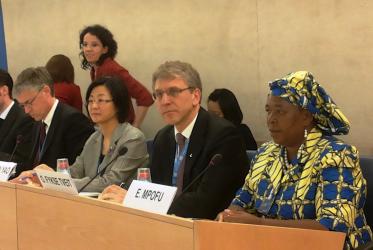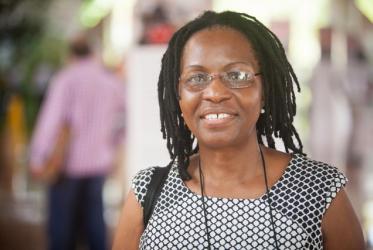Displaying 21 - 40 of 52
16 February 2017
Tveit offers input at religion and development meeting
03 October 2016
WCC convenes strategic meeting on sustainable development goals
11 February 2016
Churches' “prophetic voice” will be busy in 2015
18 June 2015
Working for climate justice is an ethical and spiritual imperative
27 February 2013
